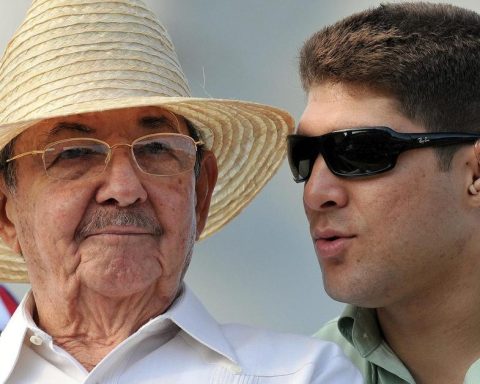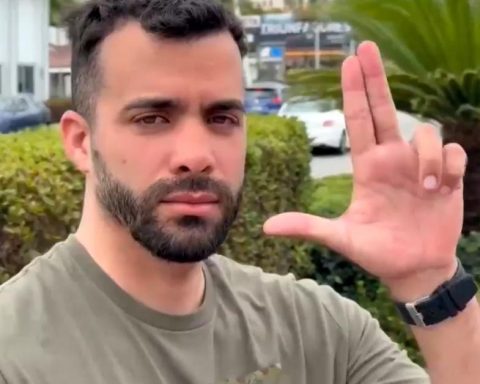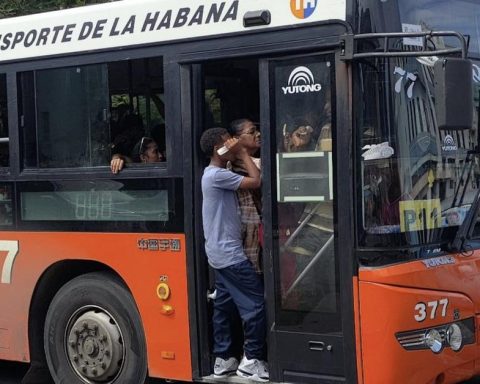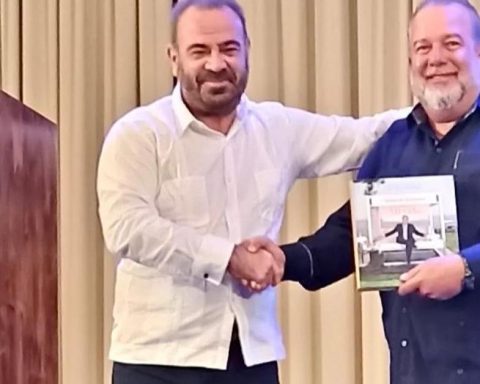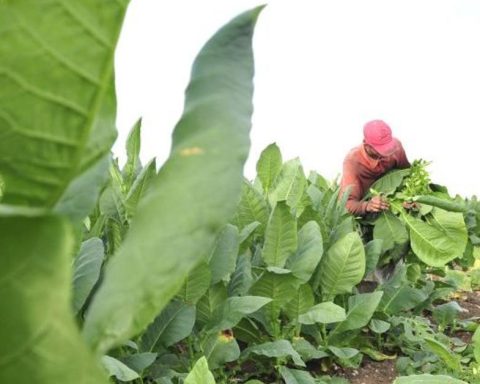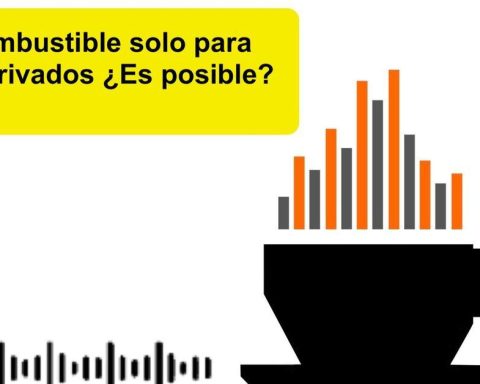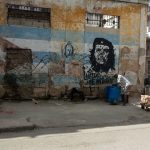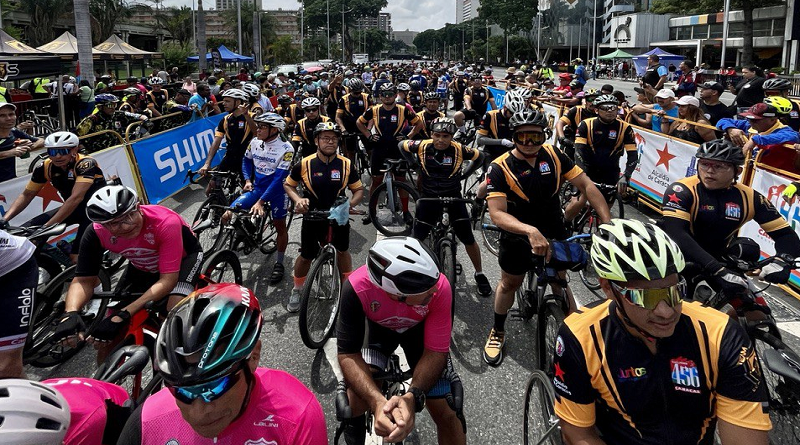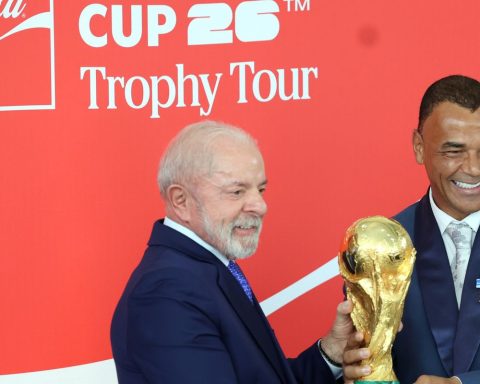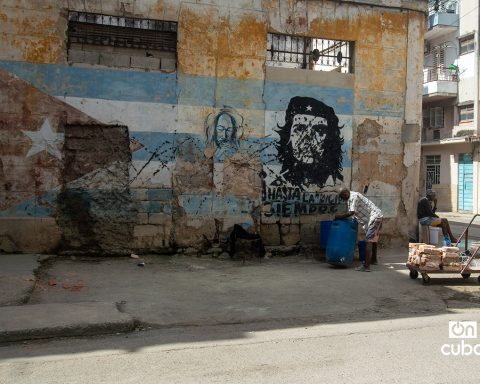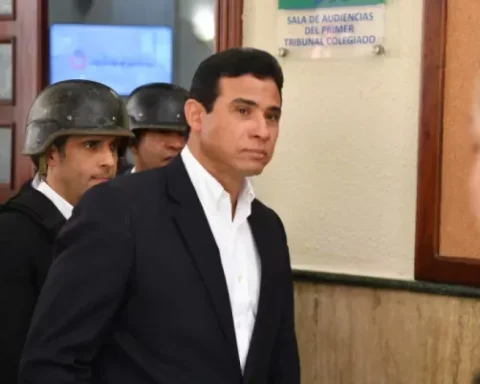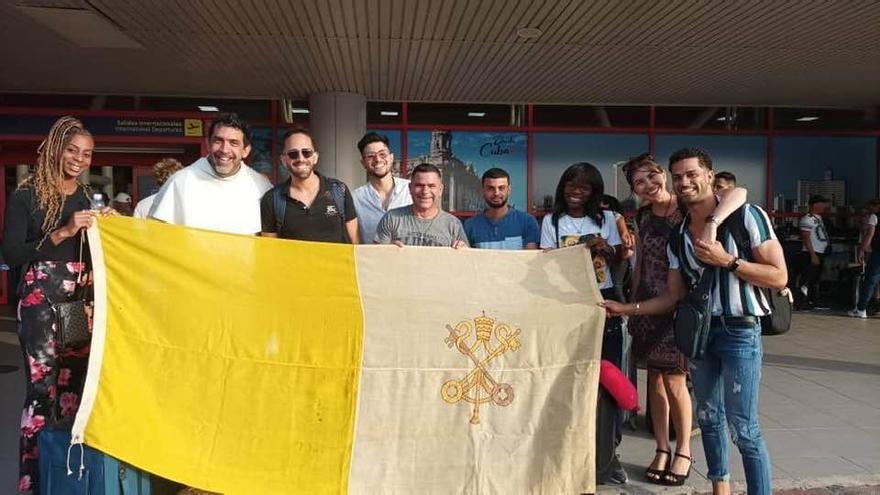
Several of the 140 young people who arrived at the Madrid airport on Monday to participate in the Catholic World Youth Day (WYD) in Lisbon, Portugal, have already left the delegation. Although the mediation of the Cuban Episcopal Conference and the payment of 2,000 euros per person facilitated the registration of more than 250 participants from the Island in the event – whose preparatory phase will take place in Spain until the end of July – it is foreseeable that a considerable part of the group will not return to Havana.
The trip has been being negotiated for months during meetings between high officials of the Church and the Government, but that did not prevent the exit from the country from facing difficulties. Several young people from Havana were questioned by the authorities at the José Martí International Airport and “warned” that their behavior in Europe should be “correct.”
“Those who went to the room to talk with State Security are the ‘unruly’ Catholics who demonstrated on July 11, 2021 in Havana,” he told 14ymedio Fernando, one of the WYD participants who prefers to hide the diocese –ecclesiastical province– to which he belongs. “Everyone saw that they were taken away to ‘read the primer’ to them.”
The young man does not believe that there was any “tacit plan” from the Episcopal Conference to remove the young people from the Island knowing that they will not return
The young man does not believe that there was any “tacit plan” from the Episcopal Conference to remove the young people from the Island knowing that they will not return. “They always acted respecting our freedom,” he says. “If someone was thinking of getting off at the Madrid airport, there was no one to stop them.
In fact, there were young people who never got on the buses that took us to Peñaranda de Bracamonte, in the province of Salamanca, Castilla y León, where Cubans stay before leaving for Portugal.”
“The trip was very expensive,” says Fernando from Peñaranda. “The young people had to pay around 2,000 euros – a little more, if the transaction was made in dollars – a hard figure considering that the euro is more than 200 pesos in Cuba.” The price includes “airfare, WYD registration, logistics and transportation from Spain to Aveiro (Portugal), from there to Fátima, then to Lisbon, and finally back to Madrid.”
The Episcopal Conference, he adds, has done “everything possible” to alleviate expenses and, in some specific cases, has covered the entire amount required. But, Fernando points out, so much sacrifice has an explanation: “The effort of families and the willingness of young people to sacrifice all their savings indicates an act of no return.”
“The visas that Portugal gave are single-entry. Perhaps if they had given multiple-entry visas, young people could have time to think better whether to stay or not.”
“The visas that Portugal gave are single-entry. Perhaps if they had given multiple-entry visas, young people could have time to think better about whether to stay or not. But in these conditions, and with how complicated it is for a Cuban to enter Europe, they will stay,” sums up Fernando.
One of the people linked to the organization of the Spanish stage of WYD –who also asks not to be identified– admitted, in conversation with this newspaper, that Spain “is prepared to receive young people who want to stay.” Upon their return to Madrid, on August 8, the youth will have five “free” days with guaranteed lodging and food, before the scheduled flight to return to Havana.
“The Cuban government has had us in its sights all this time,” he laments, without going into details about the “tensions” so that the regime did not hinder the young people’s departure for Madrid. The WYD organizing committee within the Island’s Episcopal Conference is chaired by Juan Gabriel Ruiz, Bishop of Matanzas, and by priests Junior Delgado and José Zamora.
The Cuban delegation has had a dizzying schedule: after a brief welcome at the Mater Salvatoris school in Madrid, this Monday, they left by bus for the Castilian city of Ávila and slept in a sports facility in Penaranda. This Tuesday, they have planned a visit to Alba de Tormes – the Spanish town where the writer and nun Teresa de Jesús is buried – and a walk through Salamanca.
From Cuba, several priests have assumed that many young people will remain in Europe
From Cuba, several priests have assumed that many young people will remain in Europe. This is the case of the Dominican friar Lester Rafael Zayas – one of the voices most critical of the regime within the Catholic Church – who said goodbye, in a publication by Facebookfrom various members of his parish.
“Today I said goodbye and see you soon,” he wrote. “I know that many will not return and what does it matter. What does it matter if they return or not. If they stay it is not because they are bad or traitors. Evil is in the neighborhood, in the school, in the university, in the broken dreams, in the violence unleashed.”
According to the priest, many of the young people are leaving Cuba for the first time and have had to face mistreatment by immigration authorities. “How sad that it makes them nervous to leave their own land. What a shame one feels when they discover the fear of going through immigration control in their own country. As if we were strangers even before getting on a plane. How strange that feeling of feeling foreign and vulnerable in your own land, “he lamented.
Portugal expects to receive more than one million travelers during WYD –which includes a massive meeting with Pope Francis–, to be held between August 1 and 6. The European country has increased immigration controls on the eve of the meeting, especially on the land border with Spain, and has already prevented 65 people from entering the country both by that route and by air.
________________________
Collaborate with our work:
The team of 14ymedio He is committed to doing serious journalism that reflects the reality of deep Cuba. Thank you for accompanying us on this long road. We invite you to continue supporting us, but this time becoming a member of our newspaper. Together we can continue transforming journalism in Cuba.
